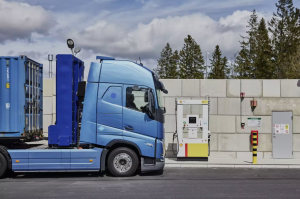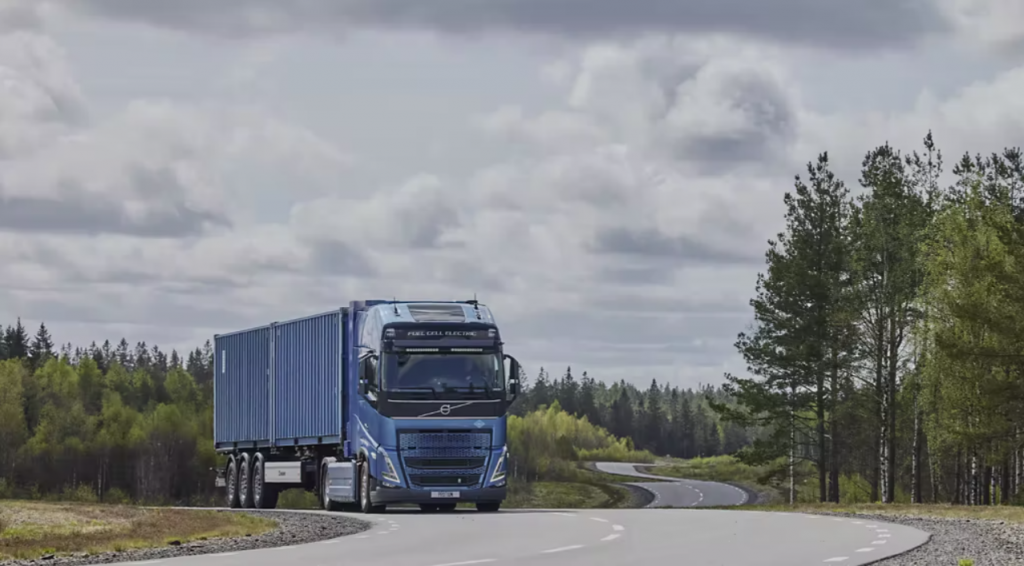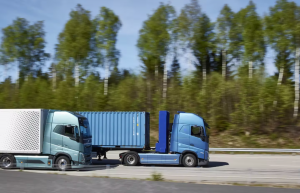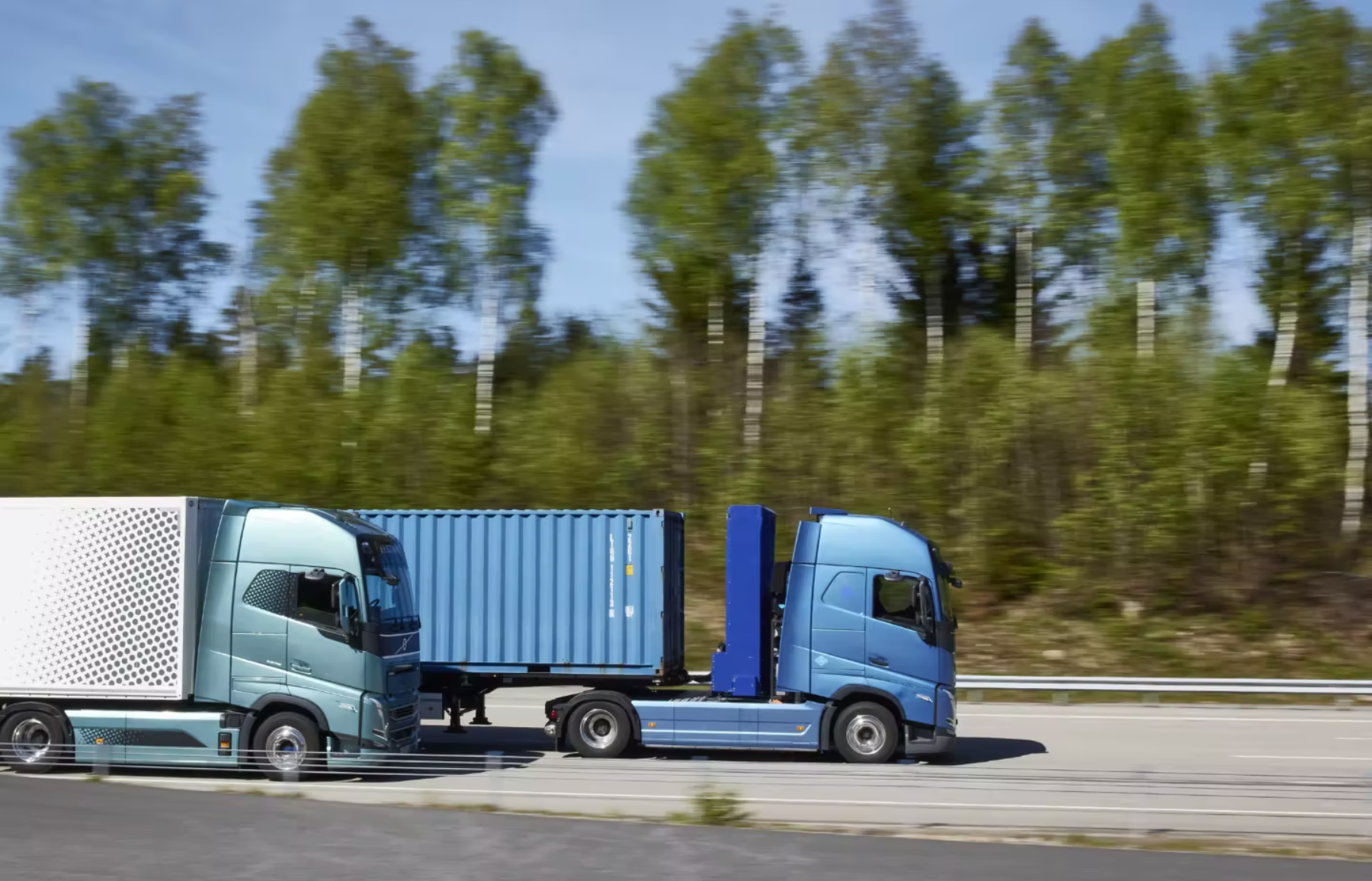Volvo testing fuel-cell trucks, operational range comparable to diesel trucks
Testing of FCEVs in commercial traffic will start in 2025
Volvo Trucks is running tests of water vapor-emitting fuel-cell electric trucks that have an operational range comparable to diesel trucks — up to 1,000 kilometers, or about 620 miles. A second pilot program phase is to follow in a few years’ time and will see customer tests on public roads, according to the manufacturer.

Volvo Trucks is running tests of water vapor-emitting fuel-cell electric trucks that have an operational range comparable to diesel trucks — up to 1,000 kilometers, or about 620 miles.
The testing of fuel-cell electric trucks in commercial traffic will start in 2025 with selected customers in Northern Europe, followed by additional trucks in more countries over the coming years.
“I believe that the pilot tests will highlight the potential for fuel-cell electric trucks. The tests will run in a demanding, harsh climate, and they also give us a great opportunity for driving with heavy loads up to 65 tons,” said Jessica Sandström, senior vice president of global product management at Volvo Trucks.
Hydrogen-powered fuel-cell electric vehicles (FCEV) will be suitable for long-distance and heavy, energy-demanding assignments — the same “use case” as trucks with diesel-fueled internal combustion engines. Fuel-cell electrics also could be a sustainable option where battery charging infrastructure is limited.

Hydrogen-powered fuel-cell electric vehicles (FCEV) will be suitable for long-distance and heavy, energy-demanding assignments — the same “use case” as trucks with diesel-fueled internal combustion engines.
Enjoying our insights?
Subscribe to our newsletter to keep up with the latest industry trends and developments.
Stay InformedFuel-Cell Ins & Outs
A fuel cell generates its own electricity from the hydrogen onboard instead of being charged from an external source. The only bi-product emitted is water vapor. Volvo’s electric trucks will use two fuel cells with a capacity to generate 300 kW of power and will have a refuel time of less than 15 minutes, according to a Sept. 21 Volvo release. The goal of the pilot tests will be to look at all different aspects of the fuel-cell electric truck’s operation, including working components, handling and driver experience, according to the release.
“We expect the supply of green hydrogen to increase significantly during the next couple of years since many industries will depend on it to reduce CO2. The fuel-cell trucks will be important for longer and heavier transportation in a few years from now,” Volvo’s Sandström said.
The fuel cells for the Volvo pilot program will be supplied by Cellcentric, the joint venture between usual competitors Volvo Group and Daimler Truck. Cellcentric is tasked with building one of Europe’s largest series production facilities for fuel cells, especially developed for heavy vehicles.

Fuel-cell technology is still in an early phase of development. There remain some challenges, mainly the lack of large-scale supplies of green hydrogen and widely available fueling infrastructure.
Fuel-cell technology is still in an early phase of development. There remain some challenges, mainly the lack of large-scale supplies of green hydrogen and widely available fueling infrastructure. During the Volvo pilot program, refilling of green hydrogen from renewable sources will be done at a home fueling depot. Green hydrogen is produced by using renewable energy sources such as wind, water and sun.
The hub-and-spoke duty cycle, where trucks return to base each day, presently is gaining in viability for FCEVs, Wido Westbroek, senior director of fuel-cell strategic projects for Cummins, said in May.
“And so, you’re not looking at the long-distance haulers where they need to have fueling along the road. The other big barrier, of course, is cost. Whenever anything starts, the first few, the first 100, even the first 1,000, are way more expensive than when you have tens of thousands, or hundreds of thousands.”
Mike Roeth, executive director of the North American Council for Freight Efficiency (NACFE), said: “The costs of hydrogen, vehicles and hydrogen production all must come down significantly to make hydrogen economically competitive with alternatives.
After speaking with industry experts and researchers, Roeth surmised that “these costs will be reduced through scale and innovation over time.”




















